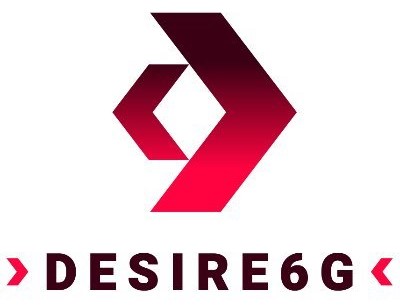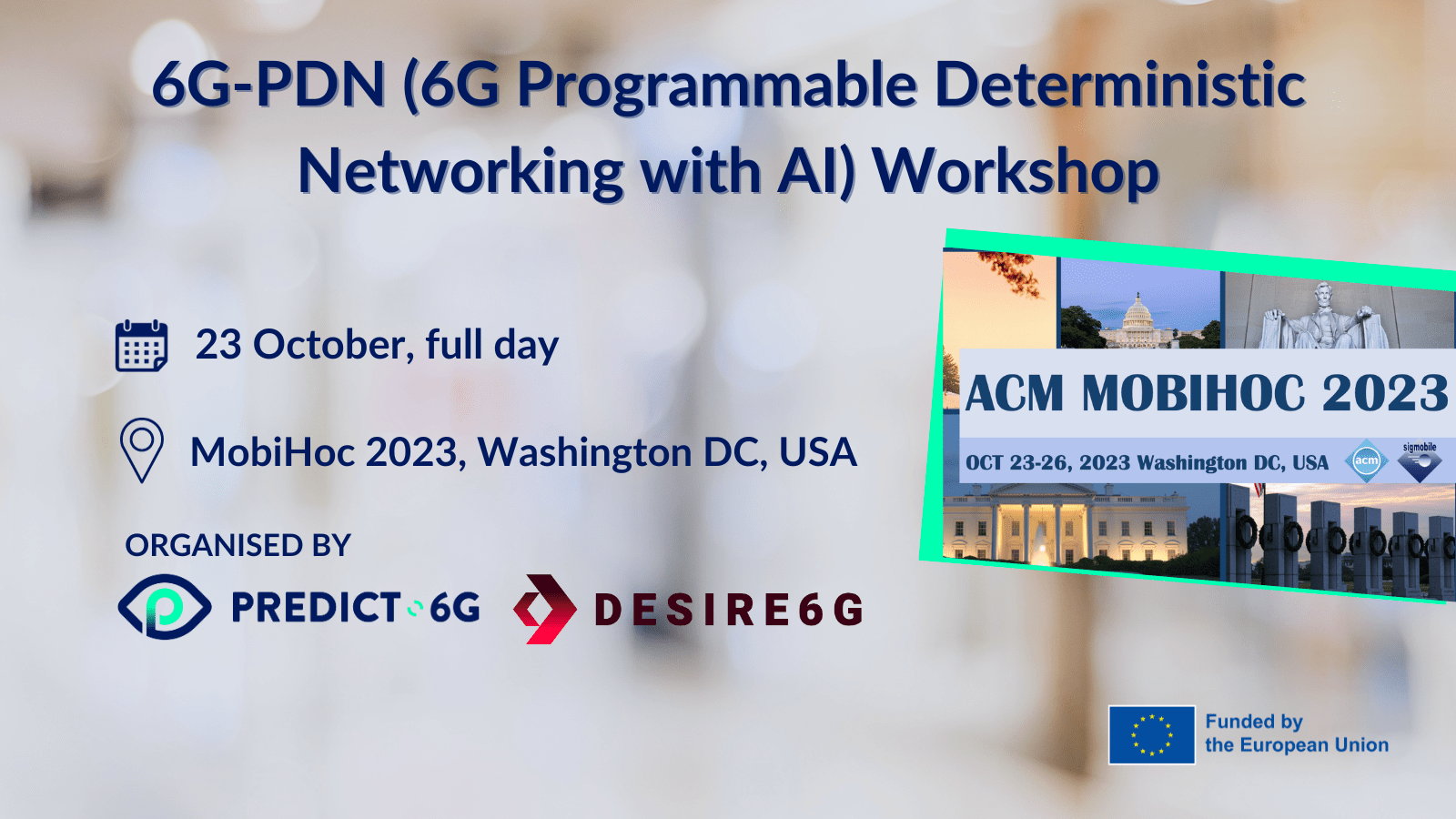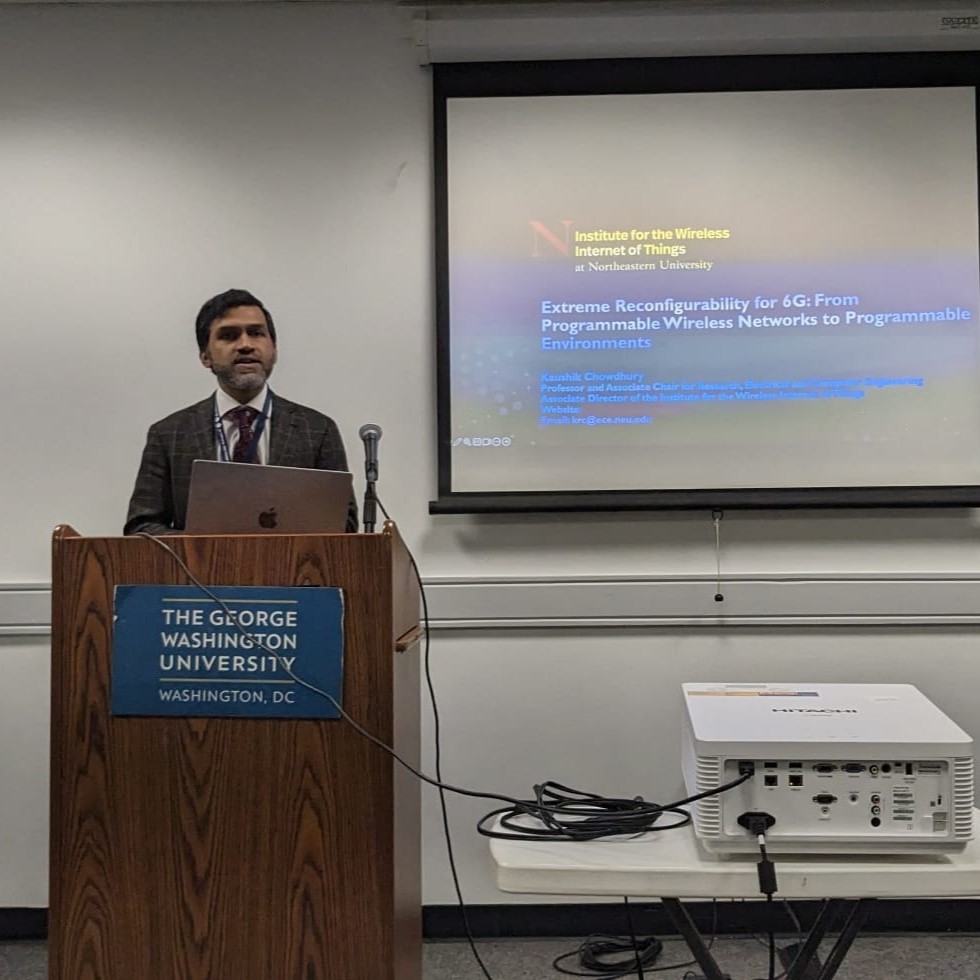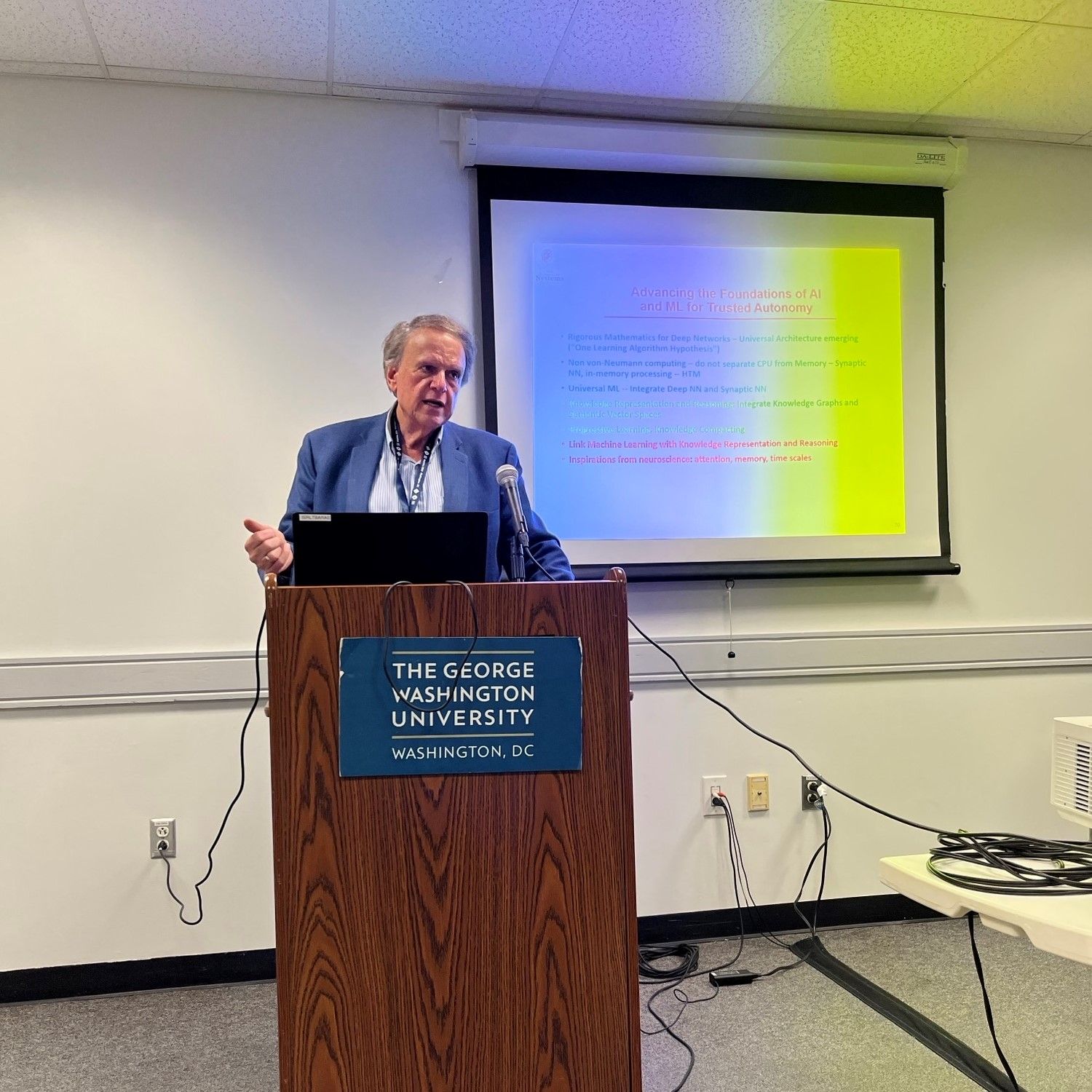We are pleased to announce that PREDICT-6G and DESIRE6G successfully co-organised the “6G Programmable Deterministic Networking with AI” workshop (6G-PDN)” on the 23 of October 2023, at the prestigious 24th International Symposium on Theory, Algorithmic Foundations, and Protocol Design for Mobile Networks and Mobile Computing (MobiHoc 2023) held in Washington DC, United States.
The ‘6G-PDN Workshop‘ served as a platform for leading researchers, industry experts, and academics to come together and discuss the roadmap and challenges of the technological areas within deterministic communications and deep network programmability in the context of 6G technology to support future end-to- end time-critical applications.
Hosted by the project coordinators of PREDICT-6G and DESIRE6G, Dr. Antonio de la Oliva and Dr. Chrysa Papagianni, respectively, the workshop spanned an entire day. It featured two keynote presentations delivered by Professor John Baras from the University of Maryland and Professor Kaushik Chowdhury from Northeastern University, along with three sessions dedicated to discussing academic papers around the following key topics:
- Deterministic Communications:
Exploring cutting-edge research on deterministic communication technologies that can provide ultra-reliable, low-latency communication links for critical applications such as autonomous vehicles, industrial automation, healthcare systems, and more. This is particularly relevant for PREDICT-6G, which focuses on creating a secure, modular, interoperable, and extensible deterministic network and management framework that automates the definition, provisioning, monitoring, fulfillment, and life-cycle management of end-to-end deterministic services over multiple network domains.
- Deep Network Programmability:
Delving into the advancements in deep network programmability, the ability to program the network fabric both vertically (control and data plane) and horizontally (end to end), that is expected to characterise the new generation of mobile networks, towards supporting extreme performance requirements and service-specific operations. DESIRE6G is in fact introducing deep programmability to the mobile network with the adoption of an end-to-end programmable data plane that supports multi-tenancy, using an abstraction layer to interact with the heterogeneous devices e.g., ASICs, CPUs, GPUS, DPUs etc.
- Transforming networking with AI
Native integration of AI is considered an integral feature of envisioned 6G systems both as a means for designing flexible, less complex, reconfigurable networks, as well as an intrinsic in-network intelligence feature. This is relevant to DESIRE6G that aspires to natively integrate AI in the 6G system architecture to support adaptive decision-making at different time scales with expected impact on energy and performance efficiency gains.
The workshop’s key findings include the definition of digital twins, AI and sensing as key areas where deterministic and programmable networks can work together to achieve extreme KPIs.
The standout aspect of the workshop was without any doubt the excellent quality of our keynotes: “Extreme Reconfigurability for 6G: From Programmable Wireless Networks to Programmable Environments” by Professor Kaushik Chowdhury and “Next Generation Hybrid Network (core, 5G/6G, non-terrestrial) Automation: Integrated Model-Based and Data-Driven Systems Engineering” by Professor Baras, which attracted top researchers attending the MobiHoc conference.
The papers that were selected to be part of the workshop are listed below:
- A hierarchical AI-based control plane solution for multi-technology deterministic networks. Authors: P. Giardina, P. Szilágyi, C. Chiasserini, J. Carcel, L. Velasco, S. Spadaro, F. Agraz, S. Robitzsch, R. Rosales, V. Frascolla, R. Doostnejad, A. Calvillo, G. Bernini.
- Using RAW as Control Plane for Wireless Deterministic Networks: Challenges Ahead. Authors: C. Bernardos, A. Mourad, M. Groshev, L. Contreras, M. Roselló, O. Bularca, V. Frascolla, P. Szilagyi, S. Robitzsch.
- Aligning rTWT with 802.1Qbv: a Network Calculus Approach. Authors: C. Barroso-Fernández, J. Martín-Pérez, C. Ayimba, A. de la Oliva.
- Enabling Programmable Deterministic Communications in 6G. Authors: M. Thi, S. Said, A. Roberty, F. Chbib, R. Khatoun, L. Linguaglossa.
- In-Network Quality Control of IP Camera Streams. Authors: C. Györgyi, K. Kecskeméti, P. Vörös, S. Laki, G. Szabó.
- In-Network Security Applications with P4RROT. Authors: K. Kecskeméti, C. Györgyi, P. Vörös, S. Laki.
- Towards extreme network KPIs with programmability in 6G. Authors: G. Pongrácz, A. Mihály, I. Gódor, S. Laki, A. Nanos, C. Papagianni.
- Failure Prediction in Software Defined Flying Ad-hoc Network. Authors: D. Uomo, A. Sgambelluri, P. Castoldi, E. De Paoli, F. Paolucci, F. Cugini.
We extend our gratitude to all participants and to the esteemed keynotes, Professor John Baras and Professor Kaushik Chowdhury, for their invaluable contributions and insights shared during the event. Their expertise and perspectives significantly enriched our discussions, and we anticipate that they will continue to ignite further stimulating conversations in the future.
Stay tuned for future updates and events as we continue to strive towards shaping the future of 6G.
|
|

|




